The Roundup Top Ten for September 4, 2020

The Pope, the Jews, and the Secrets in the Archivesby David I. KerzerNewly available Vatican documents, reported here for the first time, offer fresh insights into larger questions of how the Vatican thought about and reacted to the mass murder of Europe’s Jews, and into the Vatican’s mindset immediately after the war about the Holocaust, the Jewish people, and the Roman Catholic Church’s role and prerogatives as an institution. |
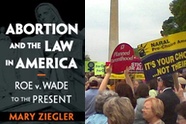
What's Next for Abortion Law?by Mary ZieglerThinking historically about the abortion debate shows a shift in the ground of conflict from questions of rights to questions of restriction. The debate has always been about how the costs and benefits of childbearing are shared in society. |
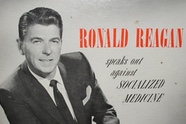
Even After Their Fearmongering Proves Wrong, Republicans Keep At It. Here’s Why.by Lawrence B. GlickmanTrump's politics of fear are an extension of reactionary political rhetoric that dates back to the effort by right-wing leaders to argue that New Deal programs would lead to totalitarianism. |
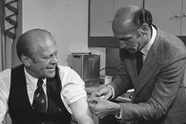
Gerald Ford Rushed Out a Vaccine. It Was a Fiascoby Rick PerlsteinIf steady, mature Gerald Ford succumbed to haste when his presidency was on the line, imagine what Donald Trump will do. |

Looking Out For Each Otherby Leah Valtin-ErwinThe wrenching transitions that East Germans faced in adapting to western commercial culture after reunification offer lessons for the COVID crisis, and a warning that the burdens of managing social change and stress often fall on retail workers. |
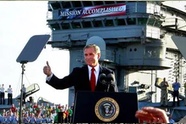
Opening Up New Avenues to Understanding the Path to War in Iraqby Joseph StiebNational security historian Joseph Stieb reviews journalist Robert Draper's account of the drive to war against Iraq in 2003, concluding that Draper explains how the principals built a case for war out of selectively embroidered intelligence, but not why war appeared as a positive option or much of the American political establishment got on board. |
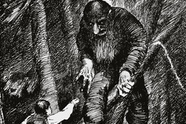
Whose Anger Counts?by Whitney PhillipsMany complaints about "cancel culture" depend on a false equivalency between left and right forms of internet argument that ignores the nature of far-right online harassment as a tool of power. |

The Real Suburbs: Unpacking Distortions and Truths about America’s Suburbsby Becky NicolaidesA leading historian of American suburbs points to the fine-grained changes in the L.A. metro area that confound Donald Trump's 1950s version of the suburban dream. Do the suburbs he's pandering to even exist today? (Photo by author) |
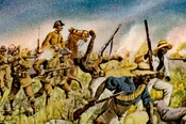
The History Of Racist Colonial Violence Can Help Us Understand Police Violenceby Sarah OlutolaRacial ideologies and practices of social control honed by colonial powers are present today in American police tactics and defenses of police abuse against communities of color. |
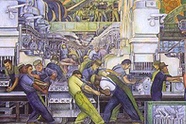
What Liberals Get Wrong About Workby Michael J. SandelMichael Young, who coined the term meritocracy in the late 1950s—and who used it as a pejorative—observed four decades later: “It is hard indeed in a society that makes so much of merit to be judged as having none. No underclass has ever been left as morally naked as that.” |